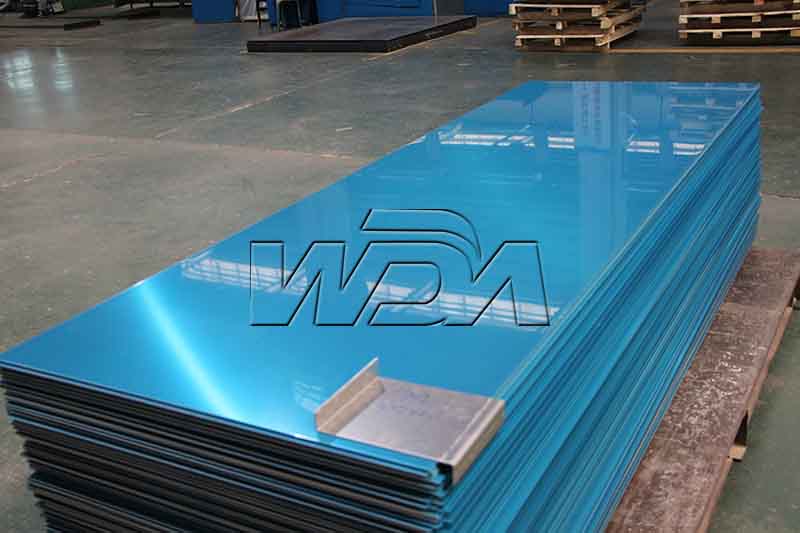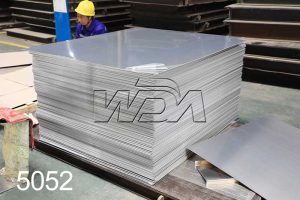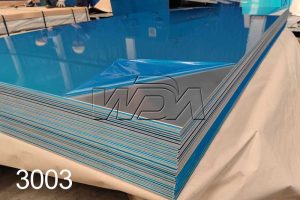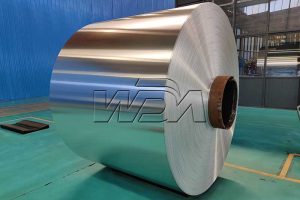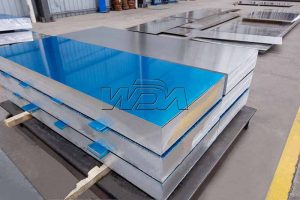Aluminum for Lightweight Automobile
- Thickness: 1.0mm-30mm
- Width: Under 2250mm
- Length:Under 11000mm(11m) or by coil
- Email: wandaaluminumsheet@gmail.com
- Tel & WhatsApp: +8613619844700
The automobile industry is continually seeking ways to improve vehicle efficiency and reduce fuel consumption, while still maintaining high levels of performance and safety. One of the ways automakers are achieving this is through the use of lightweight materials, with aluminum being one of the most popular choices.
Aluminum is a lightweight and durable metal that has been used in various applications for many years. However, it is only in recent years that the automobile industry has started to adopt aluminum for mass production of vehicles. This is due to the unique properties of aluminum that make it ideal for use in automobiles.
Some of the most commonly used aluminum alloys in car manufacturing include:
- 6xxx Series: This series of aluminum alloys is widely used in automotive applications due to their high strength-to-weight ratio, good formability, and excellent corrosion resistance. Some of the specific alloys within this series include 6061 aluminum and 6063 aluminum.
- 5xxx Series: This series of aluminum alloys is known for its excellent weldability and good corrosion resistance. It is commonly used in automotive body panels and other structural components. Some of the specific alloys within this series include 5083 aluminum plate and 5182 aluminum.
- 7xxx Series: This series of aluminum alloys is known for its high strength and excellent fatigue resistance. It is commonly used in racing cars and high-performance vehicles. Some of the specific alloys within this series include 7075 aluminum and 7050 aluminum.

One of the key advantages of aluminum is its weight. Aluminum is a lightweight metal that weighs only one-third of the weight of steel. This means that using aluminum in automobiles can significantly reduce the weight of the vehicle, which leads to improved fuel efficiency and reduced emissions.
Reduced weight also means that the vehicle’s acceleration, braking, and handling are improved. This is because the vehicle’s power-to-weight ratio is increased, allowing it to accelerate more quickly and handle more responsively. Additionally, reduced weight also means that the suspension system of the vehicle does not have to work as hard, resulting in a smoother ride.
Another advantage of aluminum is its durability. Aluminum is a corrosion-resistant metal, which means that it can withstand exposure to harsh weather conditions and road salt without rusting. This is particularly important for automobile components that are exposed to the elements, such as wheels and body panels.
Aluminum is also an excellent conductor of heat, which means that it can be used to dissipate heat away from critical components of the vehicle, such as the engine and brakes. This improves the vehicle’s overall performance and helps to extend the life of these components.
The use of aluminum in automobiles is not without its challenges, however. One of the main challenges is the higher cost of aluminum compared to steel. This has been a barrier to widespread adoption of aluminum in the past, but as manufacturing techniques have improved and the demand for lightweight materials has increased, the cost of aluminum has come down.
Another challenge is the difficulty of working with aluminum. Aluminum is a softer metal than steel, which means that it can be more challenging to shape and weld. However, advances in manufacturing techniques, such as laser welding and adhesive bonding, have made it easier to work with aluminum.
Despite these challenges, the benefits of using aluminum in automobiles far outweigh the drawbacks. As consumers demand more fuel-efficient and environmentally friendly vehicles, automakers will continue to look for ways to reduce weight and improve performance. Aluminum is an ideal material for achieving these goals, and as technology continues to advance, it is likely that we will see even more widespread use of aluminum in automobiles in the future.
In conclusion, the use of aluminum in automobiles has become increasingly popular in recent years due to its unique properties that make it ideal for use in lightweight, fuel-efficient vehicles. If you are interested in aluminum sheet for Lightweight Automobile, just leave your message below and we will provide you free quotation! Or email us: wandaaluminumsheet@gmail.com or WhatsApp us: +8613619844700.

